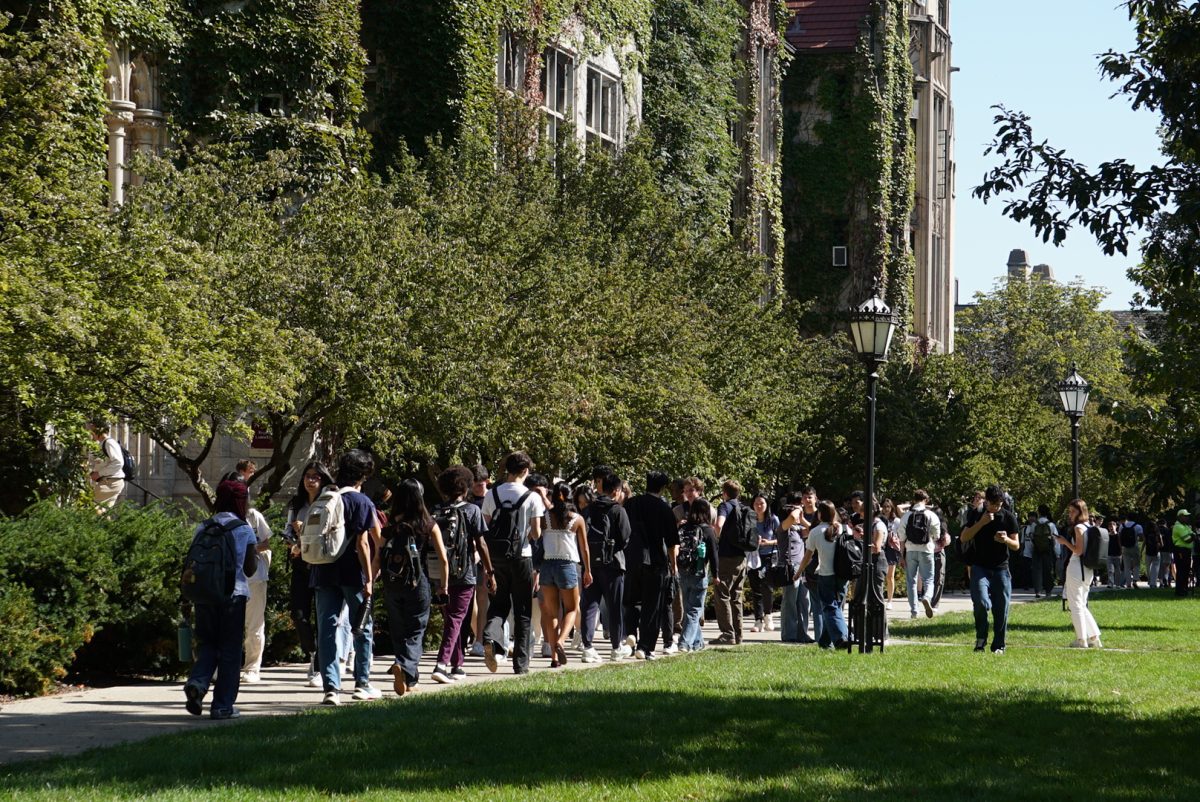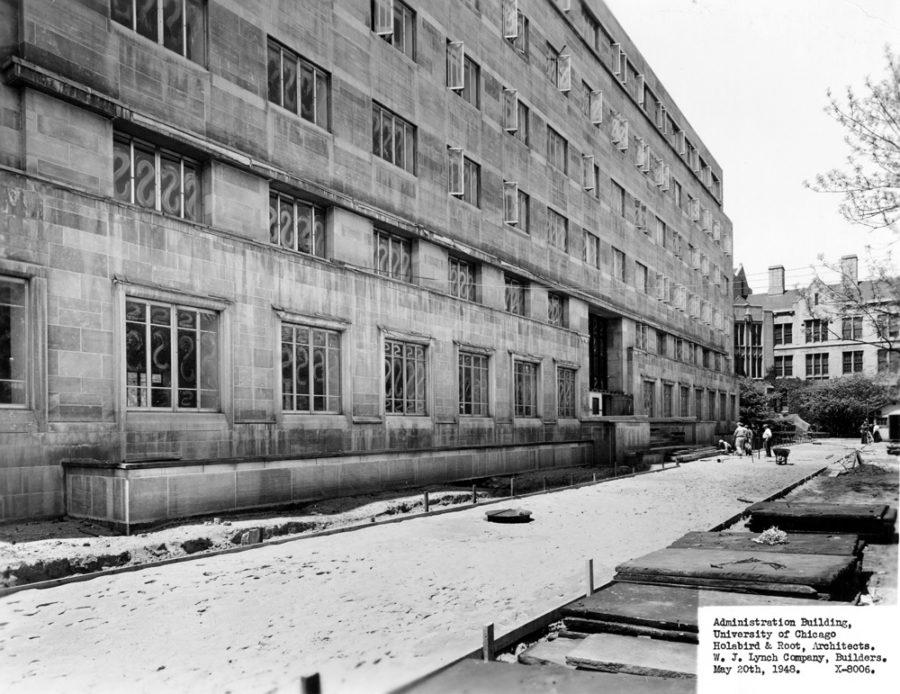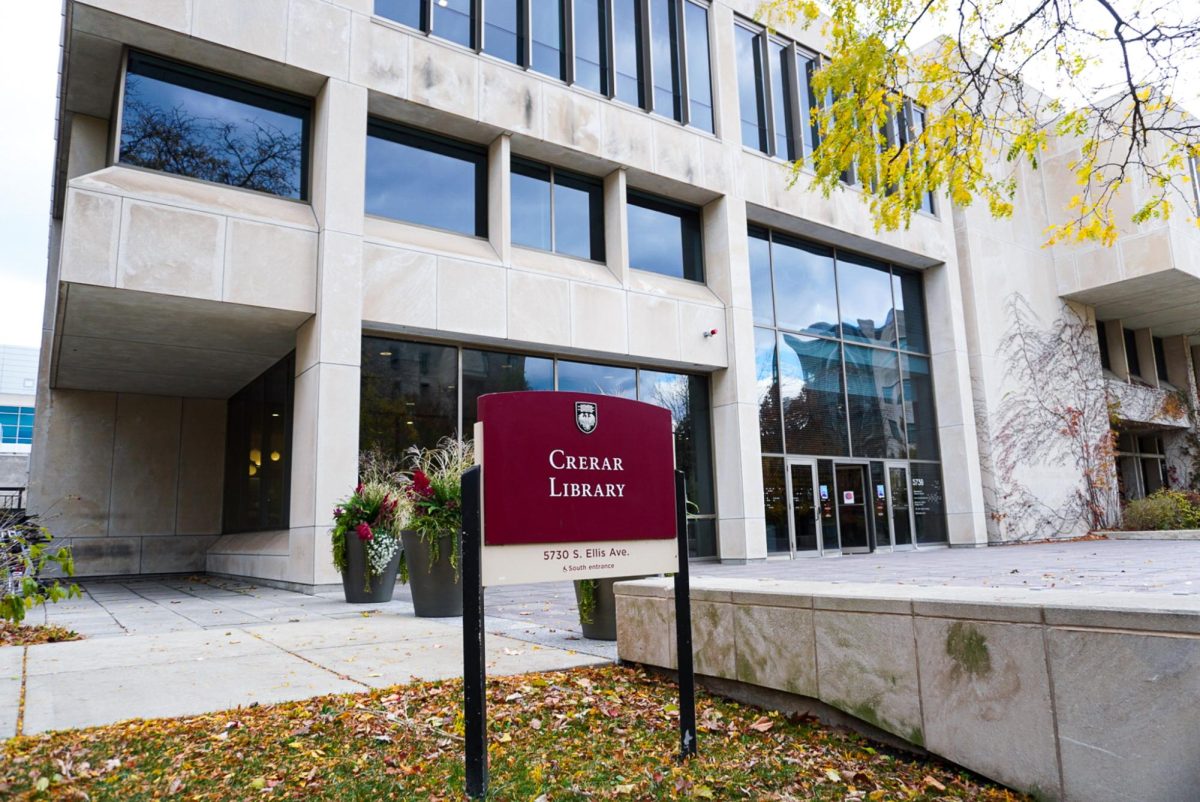September 8, 2004—PARIS—In French, there are two ways to wish someone “good luck.” If you say “bonne chance,” it implies that they need dumb luck, the kind determined by fortune and the gods or the chain of events that results from how hard someone squeezes a catsup bottle on the other side of the Earth. So while my American friends may have wished me all the good luck in the world, I have found that what I need most is “bon courage.” My French dictionary defines “courage” as “moral fortitude; the strength of will which allows a person to persevere in trying times, to face danger or suffering, and to be firm.”
The truth is that it isn’t luck or “chance” that will see us through the most difficult trials; it is “courage.” When I decided to come to Paris for a year, I knew that it would be the most difficult thing I have ever done—but what I never stopped to consider is that “difficult” sometimes equals miserable. Instead, I spent most of my time fantasizing about living in the apartment in Amelie, singing Edith Piaf standards in a jazz club, drinking expensive bottles of wine with new French friends, kissing along the Seine at night, and leisurely sipping big bowls of coffee in a sunny sidewalk cafe on the Left Bank while accordion music sings through the trees. But as anyone else would have predicted, this was not the life that awaited me.
When my roommate Becca and I arrived at our 2-bedroom apartment far from the heart of Paris, we were greeted by dirty sponges, dirty sheets, a sticky door, and a very “important” plant (translation: lanky hunchback tree) that we must water. We had no boyfriends, no phone, and no Internet, but we did have a half-eaten banana in the refrigerator. The fantasy life I had seen in the movies and Paris vacation guides was nowhere to be found. It suddenly occurred to me that this wasn’t a yearlong vacation—this was reality.
And reality in Paris does not usually include an old and glamorous apartment with a view of the Seine and plush velvet couches; instead you have a nosy “guardien” who brings (and sometimes reads) your mail, a weird smell coming out of the dishwasher, and a bed that more closely resembles a poorly crafted futon than anything from 1-800-MATTRESS.
Becca and I had thought that we would have Internet and a phone line, but (as we probably should have known) the family who owns our apartment cancelled those services before they left. To access the phone and Internet, we first need French bank accounts, and this takes “a week or two.” Once we have bank accounts, we can open an account with France Télécom (owned by the government), which allows us to access a phone line, but does not really equip us to make phone calls. So, bien sûr, we have to find a local and long-distance carrier. This takes three weeks, as does ordering a DSL Internet package. And don’t even get me started on cell phones. What’s more, I have to navigate this sea of bureaucracy in French!
While sifting through this information in my head, I realized that I had two choices: either I could get myself some “courage” and get through it, or I could cry. At around 11:50 p.m. on my second night in Paris, I was in the Bastille metro station when I saw a mother hugging her 8- or 9-year-old daughter, rocking back and forth as they stood on the platform. Suddenly, I desperately and passionately missed my own mommy, who was 3000 miles away. I cried through five Metro stops, down three blocks, up six flights of stairs, and into my apartment, where Becca was blissfully asleep. Since I had no calling card, no telephone, no e-mail, and no one to talk to, I resorted to sobbing.
I wept as I paced around the apartment, hating myself more in every room than the one before. I blubbered on the toilet and in the kitchen, I sniffled and snorted while I changed into my pajamas, I whimpered and hiccupped and made noises inaudible to humans while I washed my face, brushed my teeth, and took out my contacts. I sobbed and sobbed until I woke up and it was morning; I realized that at some point I must have stopped crying and actually fallen asleep.
With the exception of my swollen eyes, I felt better in the morning (as I always do), and I no longer wanted to ship myself back to the U.S. with expedited service. I refuse to accept that I might be the kind of person who backs down from the scary thing because it’s just too scary. And as my dad pointed out, if I’m not ready to do this now, I’ll never be ready. So I have to realize that while Paris might not be a vacation or a fantasy, there is something much more rewarding about real life.
Eventually, all of our technical struggles will be ironed out, and I will begin classes at the University of Paris. I’ll read novels and plays and poetry, I’ll go to the theater and to blues clubs, I’ll cook for myself and do my own laundry. I’ll make new friends, dream in French, and pay my bills. I’ll know what Paris really feels like, smells like, sounds like, and tastes like—not just what it looks like on a big movie screen.
The good news is that, despite my recent disillusionment, Paris is still Paris. And every once in a while reality fades away to reveal glimpses of the magic that tourists seem to find everywhere. On my way to classes at the U of C Paris Center one absolutely perfect September morning, I noticed that the middle-aged man sitting next to me on the Metro was whistling “La Vie En Rose.” I breathed a sigh of relief, and at that moment I felt I had all the “courage” I needed.






